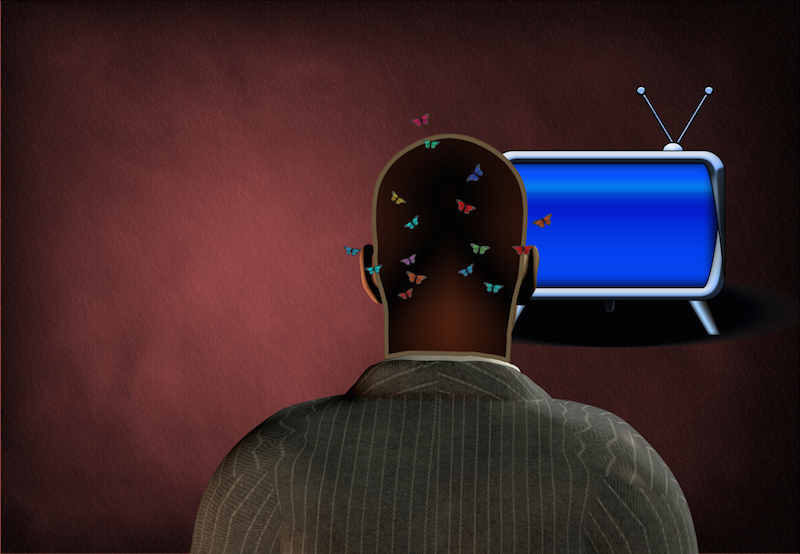Blockbuster or Bust? Brain Waves May Predict Movie Success

Get the world’s most fascinating discoveries delivered straight to your inbox.
You are now subscribed
Your newsletter sign-up was successful
Want to add more newsletters?
Join the club
Get full access to premium articles, exclusive features and a growing list of member rewards.
People's brain waves may reveal which movies they like, and even predict which movies will do well at the box office, a new study suggests.
In the study, researchers had 32 college students watch 18 movie trailers each; the students had electrodes placed on their scalps to measure their brain waves, a test known as electroencephalography, or EEG.
After they watched each trailer, the participants were asked to rate how much they liked the movie and how much they'd be willing to pay for a DVD of it. After viewing all 18 trailers, the participants were asked to rank the movies in order of preference. [10 Things You Didn't Know About the Brain]
The researchers then looked at the EEG data on certain brain waves, called beta and gamma waves. Results showed that the beta brain waves were linked with people's rankings of the movies: The more beta wave brain activity there was as a participant watched a movie, the higher that individual ranked the movie.
In another part of the study, the researchers wanted to see if they could find a way to predict how the students ranked the movies without looking at their actual rankings, based only on how much the students said they liked each movie.
The researchers found that they could in fact create a mathematical way to predict the students' movie rankings, but their predictions were more accurate when they included both the brain wave data and participant's stated feelings about the movies, rather than only the stated feelings alone.
The findings suggest that brain wave measurements may provide a better picture of what consumers will actually do (i.e., how they actually rank movies), than simply asking people in a survey about whether they liked something.
Get the world’s most fascinating discoveries delivered straight to your inbox.
The study is one of the first to show that "EEG measures are related to real-world outcomes, and that these neural measures can significantly add to models predicting choice behavior," the researchers, from Erasmus University in the Netherlands, write in a paper that will be published in an upcoming issue of the Journal of Marketing Research.
The researchers also found that the gamma brain waves were linked with how much money a movie made: The more gamma wave activity there was, the more money the movie made at the U.S. box office.
Because EEG's are relatively cheap, the authors suggest that including such measures in a marketing strategy, such as efforts to optimize a movie trailer, may be cost effective.
Although the ability of the brain waves by themselves to predict box office sales was overall quite low, they could help marketers be just a bit more accurate in judging how well a movie will do, or gauging how effectively a movie trailer will appeal to an audience. And even that slight improvement "could lead to better-informed decisions on which trailer to release, and how much money to invest in promoting that particular movie, potentially decreasing costs and increasing revenues," the researchers wrote.
Dr. Anto Bagić, an associate professor of neurology and director of the Comprehensive Epilepsy Center at the University of Pittsburgh, called the findings intriguing. Bagić noted that EEG measurements have an advantage over a different type of brain imaging called functional magnetic resonance imaging (fMRI), because EEG measurements directly reflect brain activity.
"I am not surprised at all that such inferences could be made from the rich spectrum of brain oscillations that are reflective of complex brain processes that we understand only partially," Bagić said.
But the practicality of using EEGs in predicting box office hits is still limited, Bagić said.
"I could anticipate some skeptics towards the idea" that it would be cheaper and more effective to perform an EEG on a representative sample of movie goers, instead of just getting a test audience into a theater and asking them what they think, Bagić told Live Science.
However, with more research, including studies with a larger number of people, the ability of the EEG to predict box office sales could improve, he said. If the findings are replicated, combining EEG data with information from test audiences may work best for such predictions, Bagić said.
Follow Rachael Rettner @RachaelRettner. Follow Live Science @livescience, Facebook & Google+. Original article on Live Science.

Rachael is a Live Science contributor, and was a former channel editor and senior writer for Live Science between 2010 and 2022. She has a master's degree in journalism from New York University's Science, Health and Environmental Reporting Program. She also holds a B.S. in molecular biology and an M.S. in biology from the University of California, San Diego. Her work has appeared in Scienceline, The Washington Post and Scientific American.
 Live Science Plus
Live Science Plus










